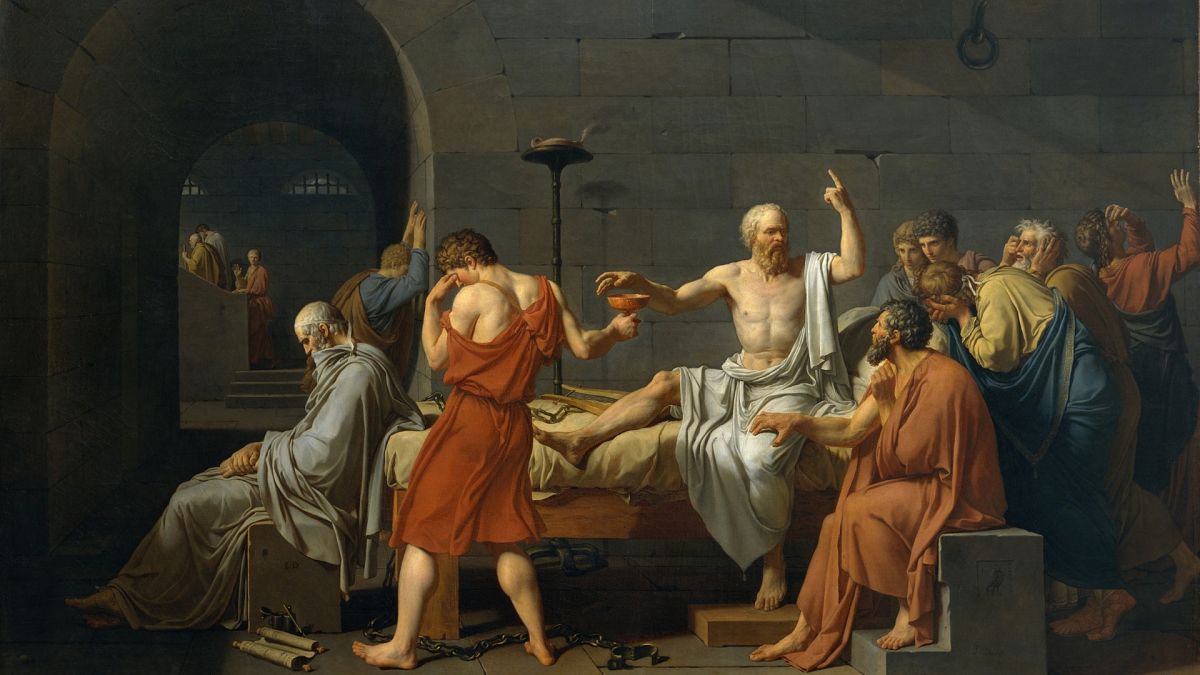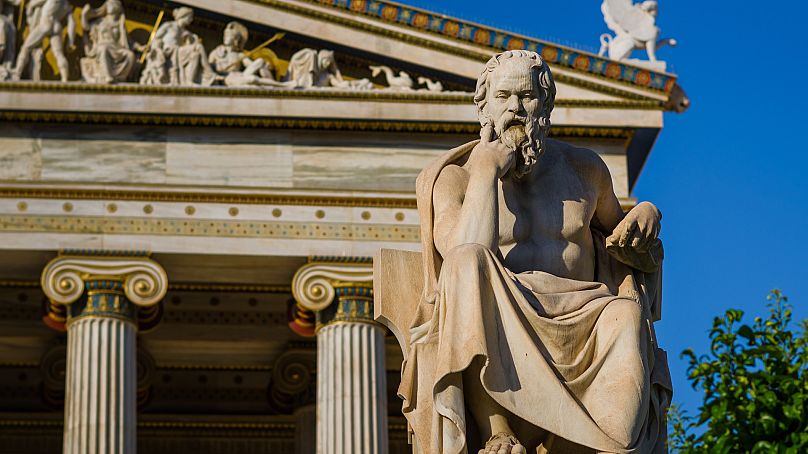We take a look back 2422 years to Ancient Greece and the reason why the government gave Socrates the death penalty.
15 February 399 BC: Socrates is forced to drink hemlock
There are a number of deaths that have remained culturally significant, but you’d be hard pressed to find someone who did it before Socrates.
Decades before the birth of Alexander the Great, centuries before Julius Caesar's assassination, and a whole different era of timekeeping before Jesus was put upon the cross, the wiley philosopher was stirring up trouble in Ancient Greece.
Born in either 470 or 469 BC to an Athenian family, Socrates’ mandated stint in the military took place during the Peloponnesian War, an arduous campaign between the city states of Athens and Sparta.
It was his career in philosophy that distinguished Socrates in the history books. For many philosophy courses, he is one of the first figures that students will study. He wasn’t just one of the most famous Greek philosophers, he was also the teacher of Plato, another of ancient Greece’s greatest contributors to philosophy.
Working out Socrates’ philosophy has always remained a challenge. The philosopher didn’t believe in writing down his thoughts, and extolled that students who relied on writing would have weaker memories.
For the most part, to understand Socrates people turn to the notes that his student Plato took down under his tutelage. Through Plato’s ‘Dialogues’ and other texts from playwright Aristophanes and student Xenophon, philosophers have pieced together an inconsistent sense of what the man actually stood for in his life. This has been coined “The Socratic Problem” by philosophers.
Many sources look to Plato as the closest to a definitive source. Through Plato, we find the “Socratic Method”, the means by which Socrates teased out his ideas. Socrates would essentially start an argument with a friend or stranger about a topic, and slowly back the other person into a corner as he showed that their thought process was contradictory. For a modern day example, many people believe Louis Theroux’s interview style employs use the Socratic method.
One of the chief principles that Socrates extolled was the virtue of knowledge. Although he would state that “I know that I know nothing,” he believed that the pursuit of knowledge and the virtue that came with it was the source of all other good virtues in the world. Therefore, anyone acting without virtue was merely acting from a point of ignorance.
It was this persistent inquiry into life and the demand for greater explanations in the name of virtue that would rile up the political establishment. The Peloponnesian War had come to a bitter end for the Athenians in 404 BC and a new tyrannical government had come into power.
Unhappy with Socrates’ status and influence over the thought of other Athenians, he was charged with impiety and corruption of youth. His trial was both a religious and political trial, and despite Socrates’ self-defence, he was found guilty.
Consistent to the very end, Socrates suggested an alternative punishment should be a fine imposed on him and meals provided to him daily for his service to Athens. The suggestion was rejected and on this day in 399 BC, Socrates was forced to drink hemlock and died.
Although Socrates’ main influence will long remain his impact on Ancient Greek philosophy, his execution by the state also stands as a reminder of the danger tyrannical governments' view free thinkers with.




